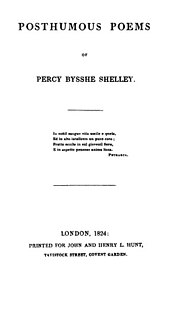
Frederick Shepherd Converse, was an American composer of classical music, whose works include four operas and five symphonies.
In the South (Alassio), Op. 50, is a concert overture composed by Edward Elgar during a family holiday in Italy in the winter of 1903 to 1904. More than twenty minutes long, it may also be considered a "tone poem".
"Pleading" is a poem written by Arthur L. Salmon, and set to music by the English composer Edward Elgar in 1908, as his Op.48.
Twilight is a song with music by the English composer Edward Elgar written in 1910 as his Op. 59, No. 6. Elgar set the words of the poem The Twilight of Love, from Volume 2 of a series of poems called Embers by Sir Gilbert Parker. The Opus 59 songs were part of a song-cycle of six romantic songs by Parker that was never completed – Nos 1, 2 and 4 were never composed. The other songs were Oh, soft was the song and Was it some Golden Star?. The songs were originally written with piano accompaniment, but this was later re-scored by the composer for full orchestra.
Oh, soft was the song is a song with words by Gilbert Parker set to music by the English composer Edward Elgar in 1910, as his Op. 59, No. 3. It is the second and last verse of a poem At Sea which Parker published in Volume I of a series of poems called Embers. The Opus 59 songs were part of a song-cycle of six romantic songs by Parker that was never completed – Nos 1, 2 and 4 were never composed. The other songs were Was it some Golden Star? and Twilight. The songs were originally written with piano accompaniment, but this was later re-scored by the composer for full orchestra.
"A Song of Autumn" is a poem by Adam Lindsay Gordon set to music by Edward Elgar in 1892.

In the Dawn is a song written by the English composer Edward Elgar in 1901 as his Op.41, No.1.

Speak, Music! is a song written by the English composer Edward Elgar in 1901 as his Op.41, No.2.

"The Wind at Dawn" is a poem written by Caroline Alice Roberts, and set to music by the English composer Edward Elgar in 1888.
”Like to the Damask Rose” is a poem either by Francis Quarles called "Hos ego versiculos", or by Simon Wastell called “The flesh profiteth nothing”. It was set to music by the English composer Edward Elgar in 1892.
”Queen Mary's Song” is a song written by the English composer Edward Elgar in 1889. The words are from Lute Song by Tennyson.

"Come, Gentle Night!" is a poem by Clifton Bingham set to music by the English composer Edward Elgar in 1901.
”The King’s Way” is a poem set to music by the English composer Edward Elgar in 1909. The words were written by his wife, Caroline Alice Elgar.
"Roundel: The little eyes that never knew Light" is a song with piano accompaniment written by the English composer Edward Elgar in 1897. The words are from the fourth roundel of a poem A Baby's Death written by A. C. Swinburne and originally published in the book A Century of Roundels.
”XTC” ("Ecstasy") is a song with words and music written by the English composer Edward Elgar in 1930. It was his last song, and written for the soprano Joan Elwes.
Carillon is a recitation with orchestral accompaniment written by the English composer Edward Elgar as his Op. 75, in 1914. The words are by the Belgian poet Émile Cammaerts.
Canto Popolare is an arrangement for viola with piano accompaniment, made by the English composer Edward Elgar. It is from the viola solo in the central section of his concert-overture In the South (Alassio), written in 1904.

"Music, When Soft Voices Die" is a major poem by Percy Bysshe Shelley, written in 1821 and first published in Posthumous Poems of Percy Bysshe Shelley in 1824 in London by John and Henry L. Hunt with a preface by Mary Shelley. The poem is one of the most anthologised, influential, and well-known of Shelley's works.

From the Bavarian Highlands, Op 27 is a work for choir and orchestra by Edward Elgar.
This is a summary of 1904 in music in the United Kingdom.







